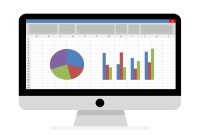- Home
- Business Processes
- Industry Knowledge
- Aerospace Industry
- Automotive Industry
- Banking Domain
- BFSI Industry
- Consumer/ FMCG Industry
- Chemicals Industry
- Engineering & Construction
- Energy Industry
- Education Domain
- Finance Domain
- Hospitality Domain
- Healthcare Industry
- Insurance Domain
- Retail Industry
- Travel and Tourism Domain
- Telecom Industry
- Leadership Skills
- eLearning
- Home
- Business Processes
- General Ledger (Record to Report)
- What is Accounting & Book Keeping
What is Accounting & Book Keeping
Accounting is a process designed to capture the economic impact of everyday transactions. Each day, many events and activities occur in an entity, these events and activities are in the normal course of business; however, each of these events may or may not have an economic impact. Events or activities that have an effect on the accounting equation are accounting events.
What is accounting?
Accounting is the process of transforming the financial information associated with economic activity into usable financial information. Accounting is the art of recording, summarizing, reporting, and analyzing financial transactions. An accounting system can be a simple, utilitarian check register, or, as with modern automated enterprise resource planning systems, it can be a complete record of all the activities of a business, providing details of every aspect of the business, allowing the analysis of business trends, and providing insight into future prospects.
The American Institute of Certified Public Accountants (AICPA)
Accountancy is "the art of recording, classifying, and summarizing in a significant manner and in terms of money, transactions, and events which are, in part at least, of financial character, and interpreting the results thereof."
The outcome of the accounting process is a group of financial statements that reflect an organization's financial position, liquidity, and profitability. Periodically, financial statements are prepared to reveal the financial position and the results of operations. These financial statements are the output of the accounting process and become an input into the analysis and decision-making activities of business owners, investors, managers, creditors, and government regulators.
These financial statements or reports are shared with the stakeholders (interested parties) who analyze, interpret, and use this accounting information for their own purposes. This information helps the users with their analysis and decision making for various objectives like investment or understanding and improving the current business. Automated accounting is an information system that provides reports to stakeholders about the economic activities and conditions of a business.
The etymology of Word Accountant:
The word "Accountant" is derived from the French word Compter, which took its origin from the Latin word Computer. The word was formerly written in English as "Accomptant", but in process of time the word, which was always pronounced by dropping the "p", became gradually changed both in pronunciation and in orthography to its present form as “Accountant”
What is the role of accounting in business?
As discussed earlier, accounting provides information for managers to use in operating the business effectively and efficiently. In addition, accounting provides information to other stakeholders to use in assessing the economic performance and condition of the business. Accounting is generally referred to as the “language of business.” This is because accounting is the means by which business information is communicated to the stakeholders.
For example, accounting reports summarizing the profitability of a new product help management decide whether to continue selling the product. Likewise, financial analysts use accounting reports in deciding whether to recommend the purchase of the Company’s stock. Banks use accounting reports in determining the amount of credit to extend to the company and suppliers on the other hand use accounting reports in deciding whether to offer credit to the company for purchases of supplies and raw materials. Governments and other statutory bodies use accounting reports to calculate and assess taxes appropriately.
Role of Accounting Department:
The accounting job is typically done by the Accounting Department, led by an accounting manager, controller, comptroller, or similar title. These folks record all the transactions that occur as the company does its business and then prepare reports that help the company management, and outside constituencies understand the financial impact of those transactions.
The accountants maintain the accounting software, process all the documentation pertaining to transactions that have occurred and record them into the company's general ledger. From all these transaction records the accountants are able to prepare a variety of reports. Some are for people outside the company, like the government, bankers, investors, and stockholders and others are the reports that are important for running the company efficiently. Accountants prepare financial reports that managers use to understand their company’s financial past and make decisions about its financial future. Automated accounting programs typically produce a variety of reports and we'll discuss these reports in-depth in later sub-sections that pertain to the general ledger.
What is bookkeeping?
Bookkeeping is the practice of recording transactions. Bookkeepers tend to focus on the details, recording transactions in an efficient and organized manner, and they may or may not see the overall picture. Accountants use the work done by bookkeepers to produce and analyze financial reports. Although accounting follows the same principles and rules as bookkeeping, accounting converts them into meaningful financial information that captures all of the details necessary to satisfy the needs of the business — managerial, financial reporting, projection, analysis, and tax reporting. Effective accounting practices across a company will create a system of financial reporting that gives a complete picture of the business.
Related Links
You May Also Like
-
Divisional Organizational Structures
The divisional structure or product structure consists of self-contained divisions. A division is a collection of functions which produce a product. It also utilizes a plan to compete and operate as a separate business or profit center. Divisional structure is based on external or internal parameters like product /customer segment/ geographical location etc.
-
GL - Recurring Journal Entries
A “Recurring Journal” is a journal that needs to be repeated and processed periodically. Recurring Entries are business transactions that are repeated regularly, such as fixed rent or insurance to be paid every month. Learn the various methods that can be used to generate recurring journals. See some examples and explore the generic process to create recurring journals in any automated system.
-
Period End Accruals, Receipt Accruals, Paid Time-Off Accruals, AP Accruals, Revenue Based Cost Accruals, Perpetual Accruals, Inventory Accruals, Accruals Write Off, PO Receipt Accrual, Cost Accrual, etc. are some of the most complex and generally misconstrued terms in the context of general ledger accounting. In this article, we will explore what is the concept of accrual and how it impacts general ledger accounting.
-
GL - Accrued / Unbilled Revenue
Accrued revenues (also called accrued assets) are revenues already earned but not yet paid by the customer or posted to the general ledger. Understand what we mean by the terms accrued revenue, accrued assets, and unbilled revenue. Explore the business conditions that require recognition of accrued revenue in the books of accounts and some industries where this practice is prevalent.
-
Network Organizational Structures
The newest, and most divergent, team structure is commonly known as a Network Structure (also called "lean" structure) has central, core functions that operate the strategic business. It outsources or subcontracts non-core functions. When an organization needs to control other organizations or agencies whose participation is essential to the success, a network structure is organized.
-
What Is a General Ledger? General Ledger (also known in accounting as the GL or the Nominal Ledger) is at the heart of any accounting system. A general ledger is the master set of accounts that summarize all transactions occurring within an entity. Ledger is the skillful grouping and presentation of the Journal entries. Learn the accounting fundamentals, general ledger process, and general ledger flow.
-
Shared Services is the centralization of service offering at one part of an organization or group sharing funding and resourcing. The providing department effectively becomes an internal service provider. The key is the idea of 'sharing' within an organization or group.
-
Business Metrics for Management Reporting
Business metric is a quantifiable measure of an organization's behavior, activities, and performance used to access the status of the targeted business process. Traditionally many metrics were finance based, inwardly focusing on the performance of the organization. Businesses can use various metrics available to monitor, evaluate, and improve their performance across any of the focus areas like sales, sourcing, IT or operations.
-
The sole trader organization (also called proprietorship) is the oldest form of organization and the most common form of organization for small businesses even today. In a proprietorship the enterprise is owned and controlled only by one person. This form is one of the most popular forms because of the advantages it offers. It is the simplest and easiest to form.
-
In most of the automated financial systems, you can define more than 12 accounting periods in a financial year. This article will explain the concept of the adjustment period and the benefits of having adjustment periods. Adjustment periods have their inherent challenges for the users of financial statements and there is a workaround for those who don’t want to use adjustment periods.
Explore Our Free Training Articles or
Sign Up to Start With Our eLearning Courses

About Us
Learning
© 2023 TechnoFunc, All Rights Reserved









